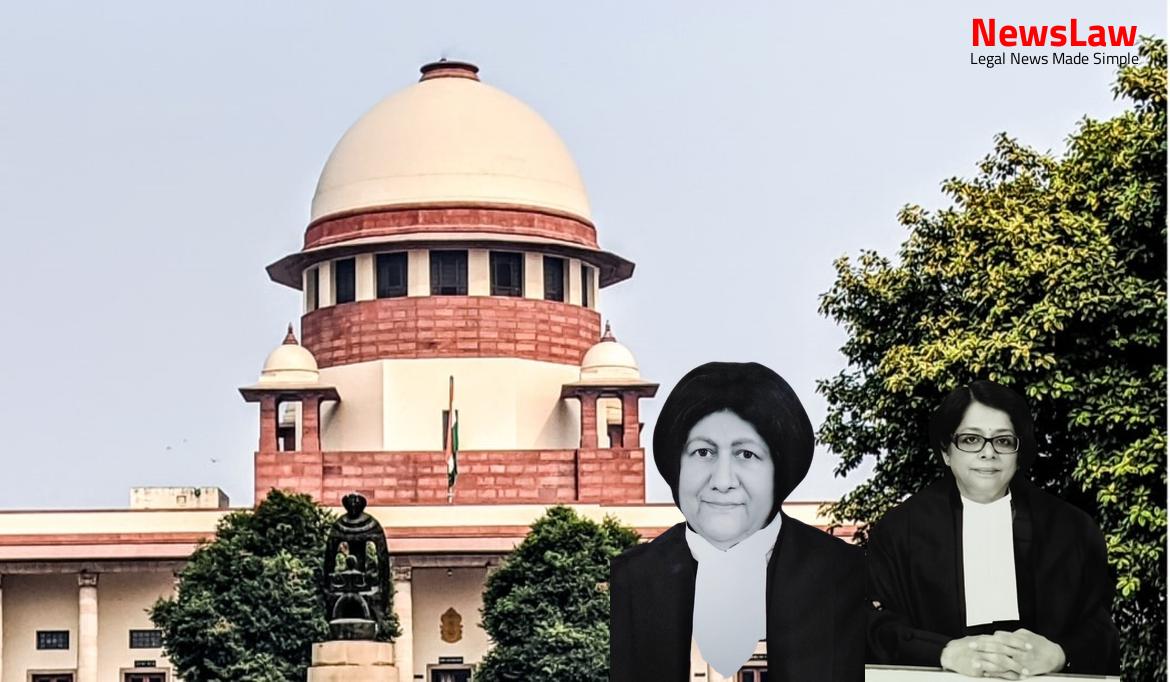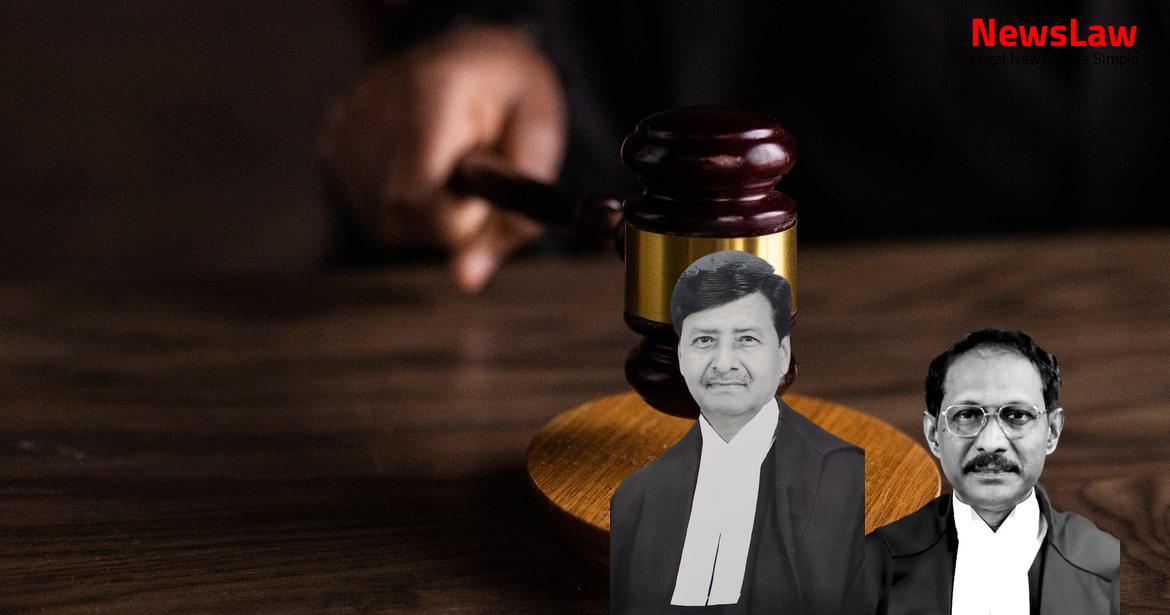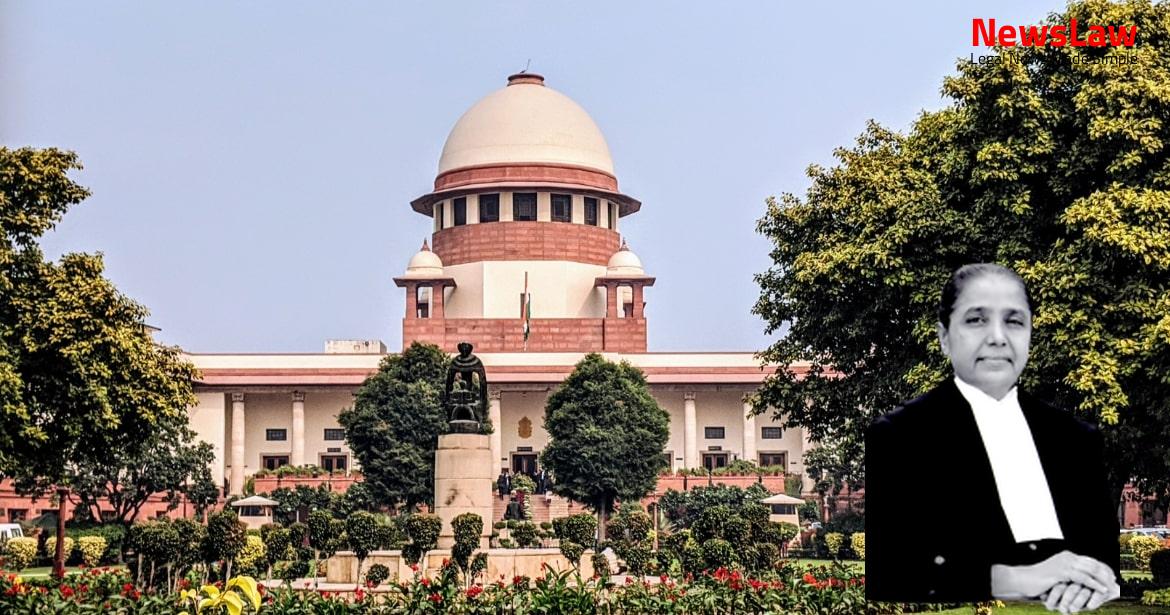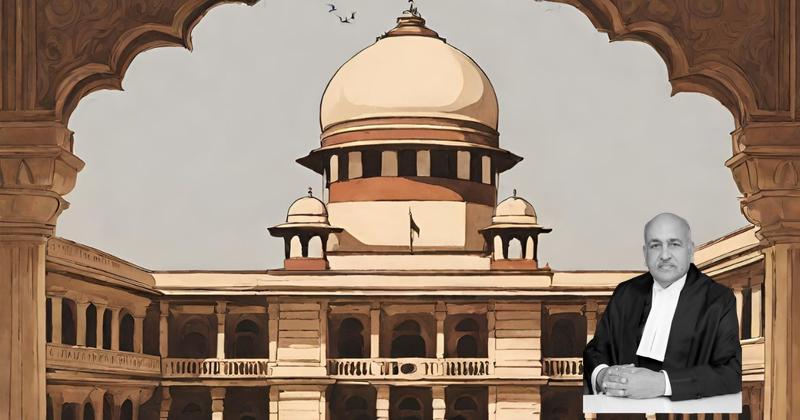In a significant legal ruling, the court has overturned the grant of anticipatory bail and directed a CBI investigation into a case involving serious allegations. The decision underscores the importance of a robust investigation process in ensuring justice and fairness for all parties involved. This landmark judgment highlights the court’s emphasis on impartiality and thorough scrutiny of the legal aspects in a case of public interest.
Facts
- Deepti suffered miscarriages on two occasions and adopted a daughter.
- Deceased transferred Rs.24 lacs to her father-in-law for hospital construction.
- Alleged suicide note underwent handwriting comparison at FSL.
- FIR alleges assault on deceased by in-laws, which led to a complaint.
- Details of financial transactions involving deceased and father-in-law provided.
- Investments and immovable properties jointly owned by deceased and spouse.
- Allegations of husband’s family fabricating incident on 1 October 2017.
- Suicide note attributed deceased’s depression due to miscarriages.
- Statements of applicants recorded before charge-sheet filing in November 2020.
- Dr. SC Agarwal and family members accused, FIR and applications for anticipatory bail filed.
- State counter-affidavit supporting appellant’s challenge to anticipatory bail.
- State inquires into murder allegation, lack of investigation post dismissal of bail applications.
- Court cites post-mortem report indicating suicide by hanging in support of in-laws innocence.
- Investment partnership between deceased and spouse for hospital establishment.
- Applicants for bail are the deceased’s in-laws and spouse is in custody.
- The FIR must reflect the basic prosecution case.
- Suicide note suggests deceased suffered from mental depression.
- Deceased and spouse set up a separate residence on 12 October 2018.
- Informant did not proceed against deceased’s spouse in the past to save the marriage.
- Deceased had previously complained of assault in 2017 but did not proceed.
- The FIR appears engineered to implicate the applicants, lacks co-relation, and contains general allegations.
- Allegations in the FIR include torture of the deceased by the respondents and demands for dowry.
- Allegations of torture were allegedly at the behest of the deceased’s father-in-law.
Also Read: Electoral Malpractices in Mayor Election
Analysis
- The FIR contains specific allegations against the accused, starting from an incident in October 2017, indicating demands for dowry, payments made by the informant, and suspicious phone calls received by the informant and the deceased.
- The High Court misread the FIR by stating no specific role was assigned to the accused. The investigating officer has a duty to investigate when a cognizable offense is reported.
- Selective leaks in the public domain compromise the presumption of innocence for the accused.
- The Deputy Superintendent of Police’s stance in the Counter Affidavit and the conduct of the investigation raise concerns about fairness and bias.
- The Single Judge’s conclusion regarding the accused’s financial means lacks a thorough investigation. Payment of money to the deceased and property transactions are highlighted.
- The issue of transferring the investigation to the CBI is approached cautiously, considering the FIR’s details about suspicious phone calls and lack of external injuries on the deceased.
- The investigation by the UP Police is criticized for its deficiencies, and the possibility of biased conclusions affecting justice is highlighted. The need for a proper investigation into financial transactions and phone records is emphasized.
- Concerns about the authenticity of the suicide note, publicity around the case, and the social influence of the accused are mentioned as factors influencing the need for a fair and rigorous investigation.
- The court expresses a lack of faith in the High Court’s approach, emphasizing the importance of a comprehensive investigation for the sake of justice and fairness to all parties involved.
- The need for a specialized agency like the CBI for further investigation is suggested, considering the serious deficiencies in the current probe. Points out the potential misconduct or omissions in the investigation process and forensic analysis.
- Interpretation of rationale for circumspection in granting anticipatory bail was discussed in various cases.
- Considerations for granting anticipatory bail reiterated in recent decisions.
- No reasons recorded is one end of the spectrum in granting anticipatory bail.
- Submission of charge sheet does not oust jurisdiction of superior court in tainted investigations.
- No embargo on transferring investigation to CBI after submission of charge-sheet.
- Difference between considerations for grant of anticipatory bail and regular bail highlighted.
- Judgment of Single Judge of Allahabad High Court deemed unsustainable in light of principles discussed.
- Correctness of bail orders is subject to assessment by appellate or superior courts.
Also Read: Balancing Power and Transparency: Electoral Bonds Struck Down, Disclosure Mandated
Decision
- The order granting anticipatory bail to the respondents-accused by the Single Judge of the High Court of Judicature at Allahabad is set aside and bail is cancelled.
- The CBI is directed to conduct further investigation of the case related to Crime No. 0623 of 2020 registered at Police Station Tajganj, District Agra, dated 7 August 2020.
- The appeals have been disposed of with the above directions.
- Any pending application(s) have been disposed of.
Also Read: Recall of Resolution Plan Approval: Legal Analysis
Case Title: NARESH KUMAR MANGLA Vs. ANITA AGARWAL (2020 INSC 706)
Case Number: Crl.A. No.-000872-000873 / 2020



